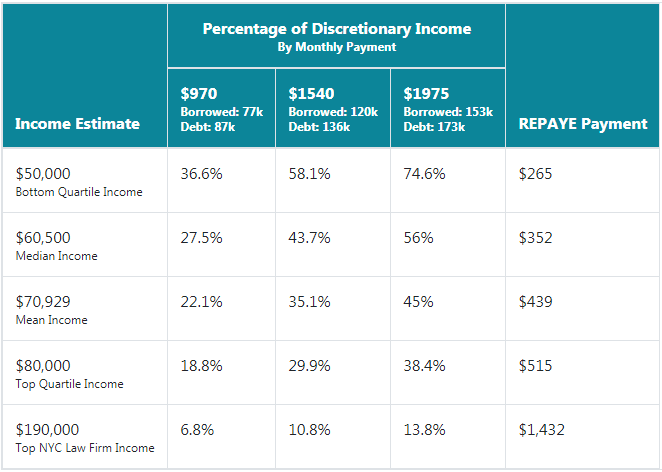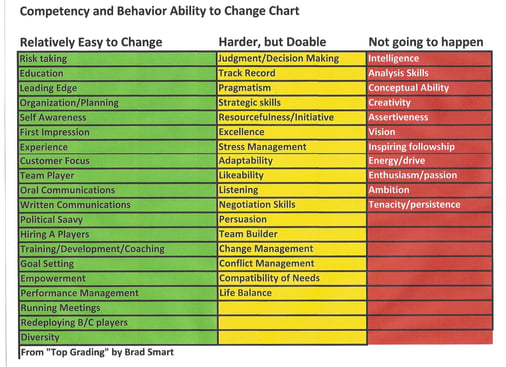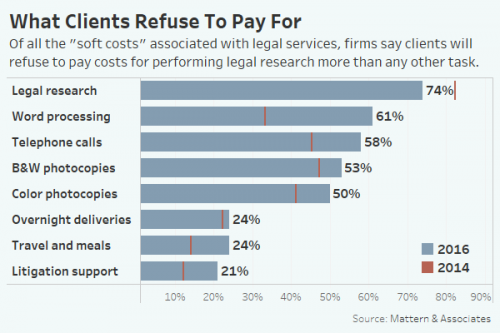
How is a recurring payment plan a potential solution for your billing cycle?
What’s the one billing problem that’s often ignored?
The missed billing cycle. If you’re managing your firm know what I’m talking about. Lost income due to a missed billing cycle.
This occurs for a variety of reasons.
Law firms routinely forget to send invoices to clients. Or they forget to follow-up with those who don’t pay. Some firms bill at the end of the month only to have clients pay (if they’re lucky) at the beginning of the next month.
Would a recurring payment plan fix these problems?
Absolutely.
The usual benefits are an obvious draw for law firms. These benefits are consistently mentioned for a reason. They provide law firms with the foundation they need to build a stable organization. Recurring payment plans, when used appropriately, make feast and famine cycles a thing of the past.
- More predictable cash flow. You and your clients settle into a routine. You bill at a specific time each month, often with a predetermined budget or range. Clients pay you automatically at a set time each month.
- Decreased collections activity. If you’re a business-to-consumer or small business attorney, recurring payment plans are a must. Why? Because according to economist Robert Reich, 8 out of 10 people live paycheck to paycheck. Payment upfront (via retainer) is the golden rule. Refuse to offer recurring payment plans and, at some point, clients will stop paying. A recurring payment plan reduces collections activity, increasing firm cash flow.
- Value-driven client relationships. A financial routine shifts everyone’s attention to the value and outcomes received by the client. A recurring payment plan reduces the attention placed on the bills and payment. Yes, clients will still be focused on their bill. But that bill will be broken up into small, bite-sized pieces clients can manage.
- Law firms become scalable. A payment plan gives your firm a certain amount of predictability. This is crucial for firm grown. The more predictable your receivables, the easier it is for your firm to raise capital, attract partners and grow your firm.
You’re probably already familiar with these benefits. Even if you aren’t, it’s not all that hard to figure out, is it? Here’s the thing about these benefits. They’re not the most valuable part of a recurring payment plan.
The most valuable components sidestep money
The most important benefits improve your financial standing dramatically but they accomplish it indirectly. This sounds strange, doesn’t it?
It’s true though.
Here are three hidden, but more valuable benefits to adopting recurring payment plans in your firm.
Hidden benefit #1: Clients are trained properly
The attorney/client relationship is very similar to a parent/child relationship. Your clients are in a vulnerable position. They’re trusting you to advocate for and champion their interests. A recurring payment plan trains your clients to behave in a specific way to ensure their matter is handled smoothly/well.
You can do this in several ways:
- Offer clients a set price or billing structure that’s easy to follow (good)
- Provide clients with a recurring payment schedule for their matter (better)
- Bill, invoice and receive payments automatically via credit card or ACH at set, predetermined intervals (best)
As a result, clients are trained to:
- Spend more money
- Request more ongoing work from your firm
- Stay engaged in the process
- Communicate openly and concisely with you
You provide your clients with statements verifying the amounts they’ve already paid. This requires that you work to build more trust upfront during your intake process but it’s well worth it as you’ll see with the next benefit.
Hidden benefit #2: Client loyalty + revenue goes up
Which client is more likely to stay? Richard a client who pays a $17,000 retainer or Geoffrey who pays $2,450 per mo ($29,400 annually)? Give up?
It’s Geoffrey.
Richard will feel a burning desire to get his money’s worth but the pain of his initial purchase (e.g. the potential for loss) will decrease with time. Geoffrey on the other hand will feel the need to get his money’s worth each and every month. He’ll ask you or more help, which will increase loyalty over time. Why?
It’s the psychology of consumption.
“The extent to which customers use the products they’ve paid for determines whether they will repeat the purchase.” John T. Gourville
The more your clients consume – the more engaged they are, the more questions they ask, the more assistance they require – the more likely they are to continue working with your firm.
Hidden benefit #3: Circumvent client games
You know the one.
Your client feels their case/matter won’t be resolved in their favor so they decide to stop paying. It makes sense in their head – why pay you if they’re going to lose and be forced to pay the other side? A recurring payment plan circumvents this issue.
- Clients spend less money upfront but pay regularly for your help
- If they fail to pay their recurring payment plan they could lose your support at an inconvenient, catastrophic or unpredictable moment. A recurring payment plan can also circumvent piecemeal billing, providing firms the structure and predictability they need to retain quality clients.
- A recurring payment plan takes advantage of the sunk cost bias. It’s a tendency people have to irrationally follow through on an activity that fails to meet their expectations due to the amount of time and/or money invested. The sunk cost bias increases in strength over time. The longer the relationship, the more money spent, the more reliant clients are on you – the more likely they are to continue paying for your help.
Hidden benefit #4: You (semi) productize your firm’s services
Productization requires specialization. If you’re a multi-purpose firm a recurring payment plan can work but it will also require a lot more work. Specialization with a few practice areas is key. If you focus exclusively on family, tax or intellectual property law you can productize your services using recurring payment plans as a delivery framework.
A recurring payment plan breaks your service/work into manageable financial pieces.
Pieces your clients can afford to pay for.
A recurring payment plan comes with hidden benefits
Firms are able to avoid the headaches and hassles that come with missed billing cycles. They’re able to train their clients to do business their way. To scale and grow their firm in a way that makes financial sense.
It’s an obvious draw.
With the right structure, you’ll have the client loyalty, financial predictability and value-driven relationships your firm needs to grow.







